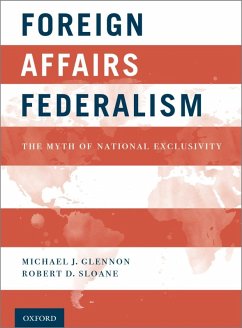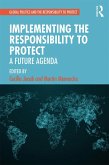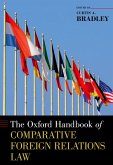Challenging the myth that the federal government exercises exclusive control over U.S. foreign-policymaking, Michael J. Glennon and Robert D. Sloane propose that we recognize the prominent role that states and cities now play in that realm.
Foreign Affairs Federalism provides the first comprehensive study of the constitutional law and practice of federalism in the conduct of U.S. foreign relations. It could hardly be timelier. States and cities recently have limited greenhouse gas emissions, declared nuclear free zones and sanctuaries for undocumented immigrants, established thousands of sister-city relationships, set up informal diplomatic offices abroad, and sanctioned oppressive foreign governments. Exploring the implications of these and other initiatives, this book argues that the national interest cannot be advanced internationally by Washington alone. Glennon and Sloane examine in detail the considerable foreign affairs powers retained by the states under the Constitution and question the need for Congress or the president to step in to provide "one voice" in foreign affairs. They present concrete, realistic ways that the courts can update antiquated federalism precepts and untangle interwoven strands of international law, federal law, and state law. The result is a lucid, incisive, and up-to-date analysis of the rules that empower-and limit-states and cities abroad.
Dieser Download kann aus rechtlichen Gründen nur mit Rechnungsadresse in A, B, BG, CY, CZ, D, DK, EW, E, FIN, F, GR, HR, H, IRL, I, LT, L, LR, M, NL, PL, P, R, S, SLO, SK ausgeliefert werden.









